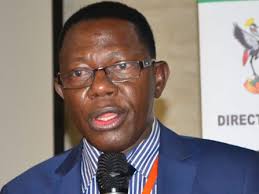Uganda’s oldest public university, Makerere University is devising a new sustainability strategy in anticipation of the end of 20 years of Swedish support for research and human resource development at higher education institutions in Uganda.
The Swedish International Development Cooperation Agency (SIDA) has been a primary source of funding for researcher training and research in Uganda under a bilateral research collaboration programme initiated in 2000.
The bilateral research programme, aimed primarily at enhancing capacity of public higher education institutions to conduct and sustain strategic and quality research by building a critical mass of independent researchers, has seen the Swedish government invest more than US $100 million into institutional building, scientific research and human resource development in five public universities: Makerere University, Kyambogo University, Busitema University, Gulu University and Mbarara University of Science and Technology.
Funding is channelled through Makerere University.
Professor Buyinza Mukadasi, director of research and graduate training at Makerere University, confirmed the funding will end in 2020. “In an effort to formulate a sound sustainability strategy, Makerere University commissioned a mid-term review from November 2015-February 2018,” he said.
The review will evaluate the academic quality and management of local PhD training, the management of cross-cutting courses as well as the programme partnership with Ugandan public universities.
Mukadasi says there is still no separate budget line for research at Makerere University and attempts to supplement donor and government funding with internally raised funds for research – for example by increasing tuition fees and by regulating and charging a fee on consultancies – have added marginal resources.
Both the university administrators and researchers recognise the need for a new approach.
“Donor financing does not form a good basis for the maintenance of the quality of research capacity in the long term,” said Mukadasi.
According to Dr Peter Waiswa, a public health doctor and beneficiary of the joint doctoral programme between the Karolinska Institute in Sweden and Makerere, the Ugandan government needs to step up. “The government needs to up its game. One hundred percent of my research is funded externally,” he said.
According to the Swedish Ambassador to Uganda, Per Lindgärde, during the annual review meeting for the programme held in October, the issue of public funding of research at universities was recognised as a development issue which needs to be steered nationally.
“The funding of universities cannot be left to donors in order to be sustainable,” Lindgärde said.
“Sweden would like to build on, encourage and welcome the Ugandan government and public universities to build on the substantive results that have been achieved in order to maintain a sustainable research environment that can underpin and support the socio-economic transformation,” said Lindgärde.
Mukadasi said the research programme, which had forged strong links with 11 Swedish universities through the PhD sandwich training, has produced “phenomenal results”. Since PhD students spent most of their time at the home university, all Ugandan PhD graduates had also remained in the country, minimising the so-called brain drain.
“The most important [contribution of the collaboration] is possibly our capacity to train and supervise masters and PhD students with internal resources. The programme has also helped to build a stronger research culture at Makerere University,” said Mukadasi.
He said organisational capacity and sustainability at Makerere University have been strengthened with the university now able to formulate, introduce and implement a broad range of policies and guidelines, and financial as well as administrative procedures, making it more efficient, effective and sustainable.
Under the programme, more than 350 academic staff completed PhDs, 249 earned masters degrees, and more than 75 postdoctoral researchers completed fellowships. Out of a total of 668 scholarships, 278 went to women and 8,000 papers were published in local, regional and international journals.
The collaboration also facilitated research contributing to policy formulation at national, regional and international levels.
Sweden has supported the development of curricula for PhD programmes in mathematics and information sciences, and for the MSc programme in disaster and risk management.
Makerere University had become a centre of excellence in library and ICT resources, providing capacity building for universities in Uganda and the region, including the University of Juba. A joint centre of excellence for non-communicable diseases had been established between the Karolinska Institute and Makerere.
Mukadasi said the university’s sustainability plan will revolve around levels of institutional preparedness, capacity in terms of human resources, physical infrastructure and financial mechanisms, policies and structures to continue implementing the research activities beyond 2020.
He said the other universities under the programme are also working on institutional sustainability plans. However, they had collectively agreed on priority areas which include institutional and research infrastructure; efficient management of local PhD training; mechanisms to sustain research; and the nurturing of a publication culture through multidisciplinary teams.




